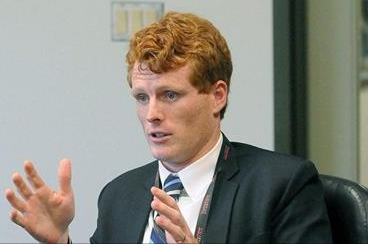By William Opalka
A meeting last Tuesday among the New England congressional delegation, ISO-NE and Federal Energy Regulatory Commission Chairman Cheryl LaFleur ended the way that it started: with LaFleur and the RTO defending rising capacity prices and the delegation unhappy.
The delegation requested the meeting after its failed attempts to get FERC to reopen the results of last year’s Forward Capacity Auction. Total costs tripled to $3 billion in FCA 8, covering the 2017-2018 period.
The results became effective when a short-handed FERC deadlocked at 2-2 over whether they were “just and reasonable.” LaFleur, who voted to approve the results, stood by her decision in a letter to the delegation last month. (See LaFleur Rejects Further Review of 2014 ISO-NE Capacity Auction.)
FCA 9, held in February, saw costs rise another $1 billion, to $4 billion for 2018-2019. (See ISO-NE Files Capacity Auction Results; Comments due April 13.)
Last week’s meeting at the Capitol was organized by Massachusetts Democratic Reps. Joseph P. Kennedy III and Richard Neal, and included LaFleur, ISO-NE CEO Gordon van Welie, 14 other congressmen and three senators. Staff members of several other congressmen and senators also attended.
According to Kennedy’s office, LaFleur stated that the capacity market is working as intended, with rising prices drawing new generating resources into the region. Reopening a settled case would also set a bad precedent, she added.
Van Welie warned that prices could go even higher.
LaFleur also reportedly said she was satisfied with a staff investigation of the planned closure of the 1,510-MW Brayton Point generating station in Massachusetts, which concluded the closure was not an exercise of market power that would benefit the plant owner’s other assets, as critics have charged. Energy Capital Partners said Brayton Point would close in 2017 and prospective owner Dynegy has stayed with that plan.
“New England residents pay some of the highest electricity prices in the country and these capacity rates continue to climb. There is no way we can look at this system and say it’s working,” Kennedy said. “The markets are rewarding highly consolidated energy incumbents on the backs of consumers … FERC’s inaction around the results of FCA 8 have left ratepayers in legal purgatory with no means to contest skyrocketing rates. This is a regulatory shortcoming that must be remedied. … [Tuesday’s] meeting was the start of a conversation I expect will continue in the weeks and months ahead.”
ISO-NE spokeswoman Lacey Girard reiterated that until plant retirements were announced in 2013, New England had a capacity surplus. About 10% of the fleet is expected to leave the market in coming years.
“These are basic economic fundamentals — when there is excess supply, prices fall, and when there is a shortage of supply, prices rise. The higher prices coming out of last year’s auction helped spur investment in new resources in the most recent capacity auction, including more than 1,000 MW of new generating capacity, which will help address the region’s resource shortage and meet peak demand in 2018,” she said. (See Exelon, LS Power Join CPV in Adding New England Capacity).
“I appreciate Congressmen Kennedy’s and Neal’s work to gather together so many members of the New England delegation to talk about the interesting and complex energy issues facing the region. I welcomed the opportunity to hear the view of the congressmen and senators and feel it was a very productive meeting,” LaFleur said in a statement.



